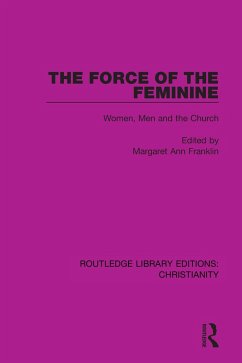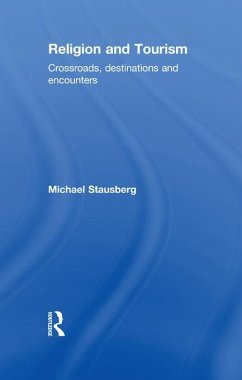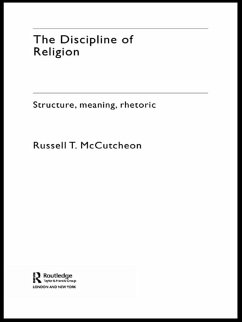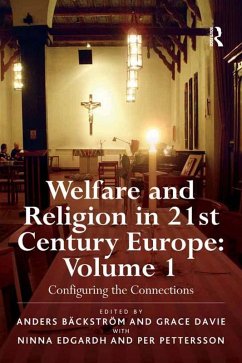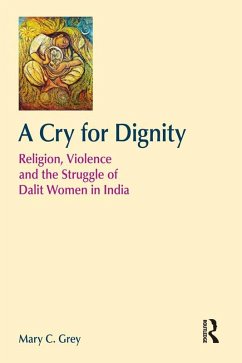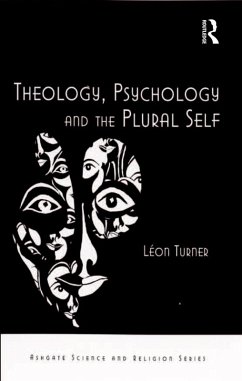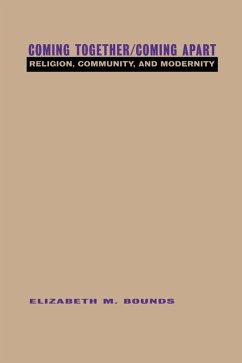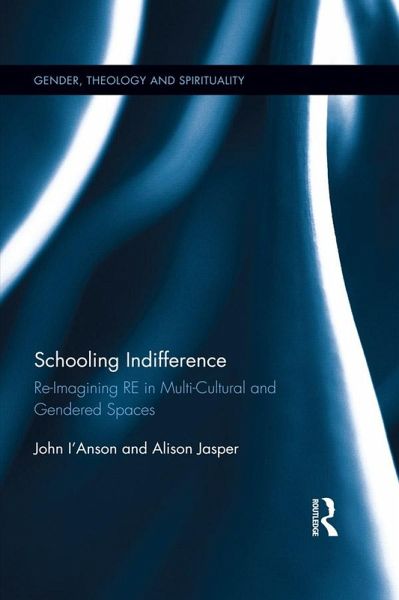
Schooling Indifference (eBook, PDF)
Reimagining RE in multi-cultural and gendered spaces
Versandkostenfrei!
Sofort per Download lieferbar
42,95 €
inkl. MwSt.
Weitere Ausgaben:

PAYBACK Punkte
21 °P sammeln!
This book is concerned with re-imagining Religious Education (RE) as this is practiced in schools, colleges and universities throughout the UK and in a wide variety of international educational contexts.On the basis of a critical analysis of current theory and practice in RE the authors argue that this educational framing is no longer plausible in the light of new theoretical developments within the academy. A new educational approach to RE is outlined that challenges students to think and practice differently. This includes a 'becoming ethnographer' approach that can acknowledge socio-materia...
This book is concerned with re-imagining Religious Education (RE) as this is practiced in schools, colleges and universities throughout the UK and in a wide variety of international educational contexts.
On the basis of a critical analysis of current theory and practice in RE the authors argue that this educational framing is no longer plausible in the light of new theoretical developments within the academy. A new educational approach to RE is outlined that challenges students to think and practice differently. This includes a 'becoming ethnographer' approach that can acknowledge socio-material relations and engage the broader literacies necessary for such study.
Part One examines how RE has been constructed as a discipline in historical and spatial terms that abstract its study from material concerns. Part Two offers some new starting points: Spinoza, Foucault and feminist theory that differently foreground context and relationality, and 'Islam' read as a discursive, located tradition rather than as 'world view'. Finally, Part Three proposes a new trajectory for research and practice in RE, with the aim of re-engaging schools, colleges and universities in a dialogue that promotes thinking and practice that - as educational - is continually in touch with the need to be critical, open-ended and ethically justifiable.
On the basis of a critical analysis of current theory and practice in RE the authors argue that this educational framing is no longer plausible in the light of new theoretical developments within the academy. A new educational approach to RE is outlined that challenges students to think and practice differently. This includes a 'becoming ethnographer' approach that can acknowledge socio-material relations and engage the broader literacies necessary for such study.
Part One examines how RE has been constructed as a discipline in historical and spatial terms that abstract its study from material concerns. Part Two offers some new starting points: Spinoza, Foucault and feminist theory that differently foreground context and relationality, and 'Islam' read as a discursive, located tradition rather than as 'world view'. Finally, Part Three proposes a new trajectory for research and practice in RE, with the aim of re-engaging schools, colleges and universities in a dialogue that promotes thinking and practice that - as educational - is continually in touch with the need to be critical, open-ended and ethically justifiable.
Dieser Download kann aus rechtlichen Gründen nur mit Rechnungsadresse in A, B, BG, CY, CZ, D, DK, EW, E, FIN, F, GR, HR, H, IRL, I, LT, L, LR, M, NL, PL, P, R, S, SLO, SK ausgeliefert werden.




